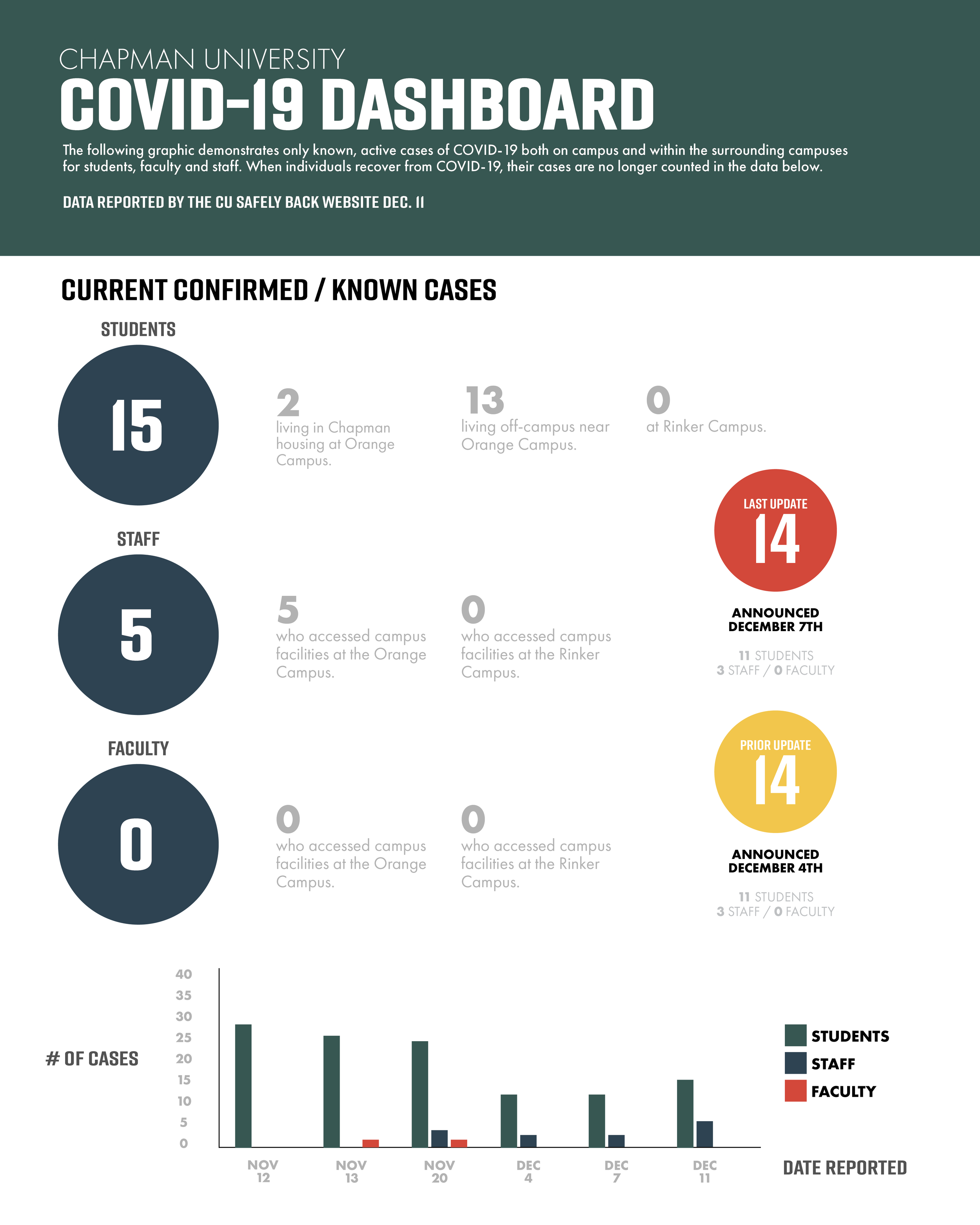California receives COVID-19 vaccines, Chapman SGA funds testing
As Chapman student government assists demand for testing due to a nationwide spike in COVID-19 cases, Pfizer’s vaccine was approved for emergency authorization Dec. 11. Graphic by HARRY LADA, Art Director
The Food and Drug Administration authorized Pfizer’s COVID-19 vaccine Dec. 11, and Pfizer is planning to supply 100 million doses of the vaccine, which will be free to the public, by next March. As California is anticipated to receive 327,600 doses, COVID-19 testing sites across the country report shortages of supplies as the demand for testing increases.
At Chapman University, the Student Government Association (SGA) approved Dec. 11 the allocation of $15,000 from their budget to provide students in need with COVID-19 tests. The university has agreed to match that amount, comprising a total $30,000 fund to be put toward free rapid tests.
“Having to pay could discourage students from getting tested,” said Philip Goodrich, SGA president. “The more people we can get tested, the better for our students and our community … I’m excited to see how the program works out.”
While a COVID-19 test in the Student Health Center is typically $40 – unless the test is required to live in student housing or access on-campus facilities – the SGA funding will provide approximately 750 free tests to undergraduate students. The program will begin Dec. 14 and students can access free testing by setting up an appointment through the Student Health Center.
Orange County cases remain classified under the purple “widespread” tier of the COVID-19 county watchlist, with 30.3 cases per 100,000 residents and a test positivity rate of 10.6% as of Dec. 13. More than 218 million tests have been conducted in the United States, according to data gathered by The COVID Tracking Project.
As inauguration day draws near, President-elect Joe Biden continues to announce his vaccine distribution plan and COVID-19 testing strategy, which President Donald Trump is often criticized for lacking.
In the midst of testing shortages, Biden announced strategies for combating the medical crisis, including a nation-wide mask mandate, free testing and commitment to vaccinate 100 million Americans in his first 100 days in office.
Despite the federal government's continued efforts to ship millions of swabs, vials and other testing supplies to states, half of 142 sampled labs in the United States are reporting shortages of test kits unrelated to COVID-19, and two-thirds are reporting shortages of crucial chemicals and other supplies, such as plastic tips for pipettes. With so many resources dedicated to COVID-19 testing, undiagnosed sexually transmitted infections (STIs) and other common diseases have increased dramatically.
The testing shortage may grow even worse in the next few months. The flu season, typically between December and February, could strain labs further with a potential increase in demand for tests during the holiday months.
Jacqueline Deats, director of the Student Health Center, told The Panther that as of Dec. 11, Chapman University’s Student Health Center has conducted approximately 4,977 rapid and polymerase chain reaction (PCR) COVID-19 tests since August, in addition to 5,542 at-home tests mailed to students through a Chapman and LabCorp contract. Deats said they’re not reporting any shortages, but instead hiring additional healthcare providers, contact tracers, medical assistants and student emergency medical technicians (EMT) to help with testing demand.
“Every day brings different challenges,” Deats said. “We’ve just had to be flexible to adapt to the different variables that are put before us every day.”

